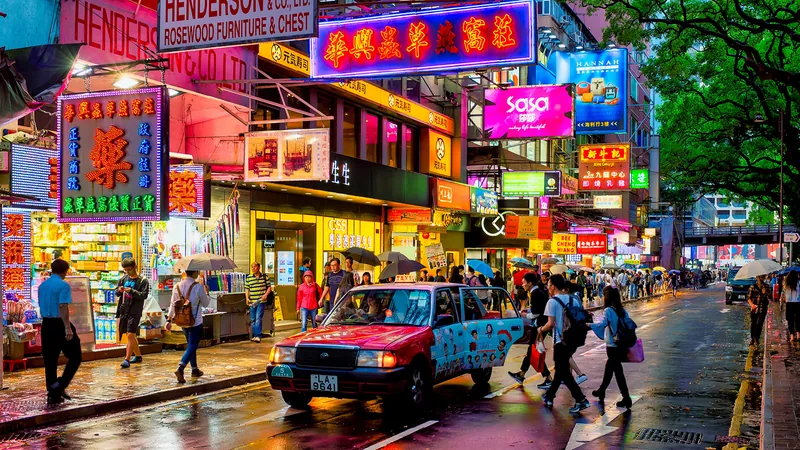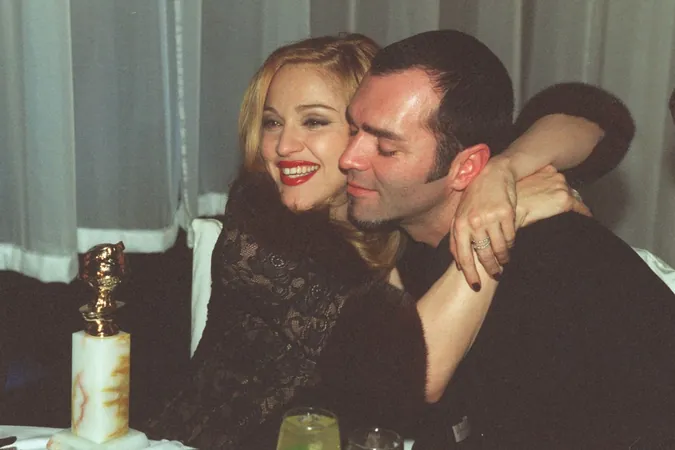
Shocking Decline in Hong Kong's Luxury Market – What It Means for Shoppers!
2024-10-08
Author: Ling
Introduction
In a surprising twist, Hong Kong’s luxury retail sector is facing a significant downturn as a shift in consumer behavior comes to the forefront. August saw retail sales plummet, largely attributed to shoppers opting for summer getaways over high-end purchases.
Statistics and Trends
According to the latest data from the Census and Statistics Department, revenue from jewelry, watches, clocks, and other precious gifts dropped by a staggering 24% compared to the same month last year, amounting to just HKD 3.93 billion (approximately $505.8 million). Overall, retail sales nosedived by 10%, bringing the total down to HKD 29.18 billion ($3.75 billion). This trend mirrors the decreases observed in July, which recorded a sad 25% decline in hard luxury sales and a 12% drop across all categories.
Reasons Behind the Decline
A government spokesperson cited multiple factors behind this downturn, emphasizing the ongoing shift in spending habits, the robustness of the Hong Kong dollar, and an uptick in outbound travel during the summer months. This combination has reignited concerns about the future of luxury shopping in the city.
Impact of Tourist Behavior
Adding to the woes is the fact that last year’s figures were unusually inflated, thanks to a post-pandemic surge fueled by the reopening of borders between Hong Kong and mainland China. Many luxury retailers in Hong Kong rely heavily on the influx of tourists, particularly from China, making this decline particularly troubling for the sector.
Year-to-Date Sales Performance
In a broader context, the first eight months of the year have also been disappointing, with hard-luxury sales down 16% to HKD 34.18 billion ($4.4 billion), while overall retail sales slipped 8% to HKD 249.81 billion ($32.13 billion).
Future Outlook
Looking ahead, industry forecasts paint a challenging picture for the retail landscape. However, government officials remain optimistic about potential recovery strategies. They noted that ongoing economic growth, rising employment incomes, and an anticipated easing of the Hong Kong dollar's exchange rate—coupled with possible US interest rate cuts—could eventually restore a semblance of stability and support to the retail sector.
Conclusion
As consumers adjust their shopping habits and priorities, one must wonder: will the luxury market in Hong Kong rebound, or is this the beginning of a long-term trend? The answer could reshape the way high-end retailers operate in one of the world's premier shopping destinations.
Final Thoughts
Stay tuned as we unravel more about the shifting tides in retail—this is a story you won’t want to miss!



 Brasil (PT)
Brasil (PT)
 Canada (EN)
Canada (EN)
 Chile (ES)
Chile (ES)
 España (ES)
España (ES)
 France (FR)
France (FR)
 Hong Kong (EN)
Hong Kong (EN)
 Italia (IT)
Italia (IT)
 日本 (JA)
日本 (JA)
 Magyarország (HU)
Magyarország (HU)
 Norge (NO)
Norge (NO)
 Polska (PL)
Polska (PL)
 Schweiz (DE)
Schweiz (DE)
 Singapore (EN)
Singapore (EN)
 Sverige (SV)
Sverige (SV)
 Suomi (FI)
Suomi (FI)
 Türkiye (TR)
Türkiye (TR)